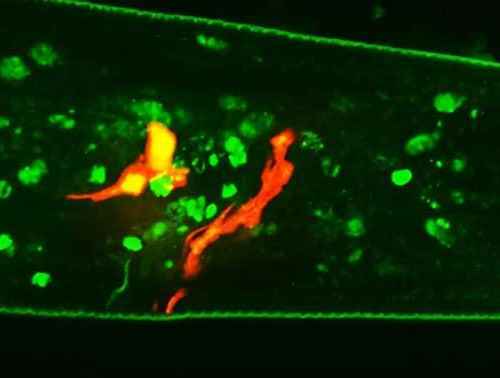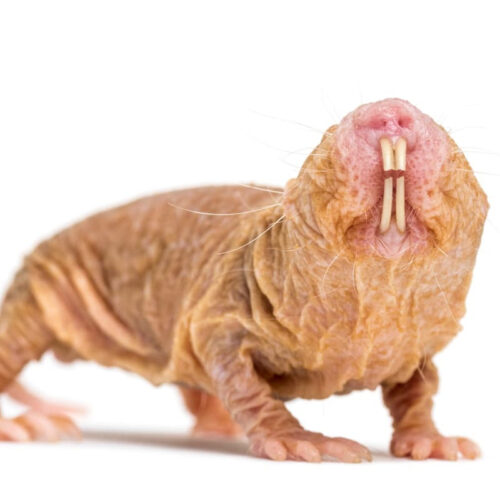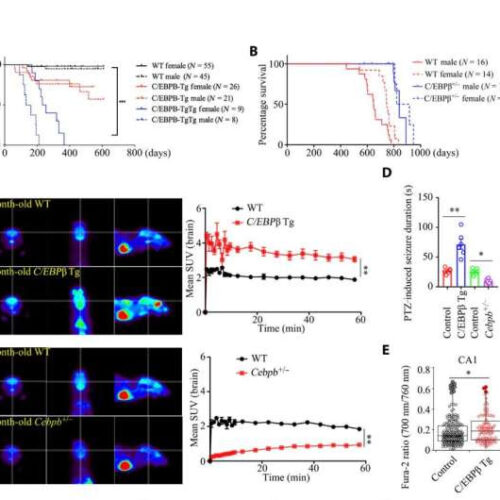by André Julião, FAPESP The red blotches in this image of the nematode C. elegans are a pair of neurons with the UPRER pathway activated in response to the odorant molecule 1-undecene. Credit: Evandro de Souza & Max ThompsonAversion to an offending smell can be an indicator of the organism’s capacity to protect itself from harmful...
Tag: <span>longevity</span>
Naked mole-rat’s ‘longevity’ gene extends lifespan and health of mice
By Bronwyn Thompson Evidence continues to mount that one of the world’s oddest creatures holds the key to unlocking good health in old age. Depositphotos They weigh about an ounce, spend their lives underground in sub-Saharan Africa and are unlikely to be making the shortlist for any cute animal calendars, but the naked mole-rat continues...
Physical activity may have a stronger role than genes in longevity
UNIVERSITY OF CALIFORNIA – SAN DIEGO IMAGE: ALADDIN H. SHADYAB, PH.D., ASSISTANT PROFESSOR AT THE HERBERT WERTHEIM SCHOOL OF PUBLIC HEALTH AND HUMAN LONGEVITY SCIENCE AT UC SAN DIEGO CREDIT: UNIVERSITY OF CALIFORNIA SAN DIEGO Previous research has shown that low physical activity and greater time spent sitting are associated with a higher risk of...
C/EBPβ/AEP pathway dictates both Alzheimer’s disease and longevity: Study
by Chinese Academy of Sciences Neuronal C/EBPβ escalation shortens the life span of mice, leading to neural excitation. Credit: SIAT Cognitive decline during normal aging is exacerbated in neurodegenerative disease including Alzheimer’s disease (AD). While it is not yet known exactly what causes AD, there are a number of risk factors that make a person...
Genetic Variants Associated with Visceral Fat Accumulation Correlate with Longevity
It is well established that excess visceral fat is harmful. This tissue is metabolically active, and generates increased chronic inflammation through numerous mechanisms: a greater number of senescent cells; signaling by fat cells that appears similar to that produced by infected cells; increased debris from dead and dying fat cells that provokes the immune system....
Blood iron levels could be key to slowing ageing, gene study shows
UNIVERSITY OF EDINBURGH Genes linked to ageing that could help explain why some people age at different rates to others have been identified by scientists. The international study using genetic data from more than a million people suggests that maintaining healthy levels of iron in the blood could be a key to ageing better and...
Nutraceuticals for promoting longevity
Aging is considered to be synonymous with the appearance of major diseases and an overall decline in physical and mental performance. This mini-review summarizes the main findings on nutraceuticals that are believed to slow aging processes by delaying and even preventing the development of multiple chronic diseases. These nutraceuticals may help improve productivity and quality...
Fitful nightly sleep linked to chronic inflammation, hardened arteries
Disrupted nightly sleep and clogged arteries tend to sneak up on us as we age. And while both disorders may seem unrelated, a new study from the University of California, Berkeley, helps explain why they are, in fact, pathologically intertwined. UC Berkeley sleep scientists have begun to reveal what it is about fragmented nightly sleep...
Could cytotoxic T-cells be a key to longevity?
by RIKEN Scientists from the RIKEN Center for Integrative Medical Science (IMS) and Keio University School of Medicine in Japan have used single-cell RNA analysis to find that supercentenarians—meaning people over the age of 110—have an excess of a type of immune cell called cytotoxic CD4 T-cells. Supercentenarians are a unique group of people. First,...
Preparing for longevity—we don’t need to become frail as we age
Age-related frailty may be a treatable and preventable health problem, just like obesity, diabetes, and cardiovascular disease, highlights a review in Frontiers in Physiology. “Societies are not aware of frailty as an avoidable health problem and most people usually resign themselves to this condition,” says Jerzy Sacha, Head of the Catheterization Laboratory at the University Hospital in Opole,...





